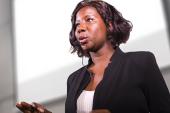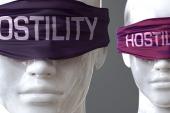Career Flexibility Benefits Cardiologists, Patients Alike: ACC Report
A new statement explores options for flexible training and work schedules, balancing quality care and physician well-being.

Flexibility in work schedules and in the timing of training requirements will benefit cardiologists at all stages of the “career arc,” improve patient care, and strengthen the field, according to a new health policy statement from the American College of Cardiology (ACC).
This balance between cardiologists’ well-being and quality care “can be accomplished fairly through the prospective development of flexible/part-time hours, leave and reentry policies, changes in job description supported by overarching cultural change, and equitable compensation and opportunity plans,” its authors write. “Only then can we build a well-rounded cardiology workforce that enjoys satisfactory work-life integration.”
Mary Norine Walsh, MD (Ascension St. Vincent Heart Center, Indianapolis, IN), who chaired the statement’s writing committee, said that this document has been in development for years and is not a reaction to the COVID-19 pandemic’s upending of work culture. Instead, it grew out of the ACC’s diversity and inclusion efforts, with an eye toward barriers that might be dissuading people from entering the cardiology field.
Survey after survey has shown that cardiologists face challenges in work-life balance, with women paying a price for having children, for instance, and difficult decisions for older clinicians as they approach retirement age. A more-adaptable workplace could be an antidote to burnout. Additionally, less-stressed clinicians can deliver better patient safety, the ACC statement notes.
“There is a growing interest in career flexibility everywhere,” Walsh said, adding, “it’s not just coming from women who are of childbearing potential who want flexibility with regard to raising a family. It’s coming from young male cardiologists who have family responsibilities and needs. And then, there are more senior cardiologists who want to stay in the game but in some places are being told [they] can’t step back to some lesser amount of responsibility other than full time.”
Walsh highlighted the diverse perspectives of the statement’s authors: from early career to senior cardiologists, a group that included a fellow in training, two health system CEOs, a chair of medicine, and cardiologists working in the Veterans Affairs system and in industry roles. “It was really important to have all voices heard,” she said.
Training, Work Hours, Deceleration
The statement, published online today in the Journal of the American College of Cardiology, has three main goals.
First, it offers solutions to “allow both men and women to reconcile training requirements and the demands of practice with parenthood and family life. [It also aims] to provide pathways for cardiologists who wish to pursue other interests or career transitions as well as cardiologists,” Walsh et al say. And finally, the paper seeks to “meet the specific concerns of cardiologists aiming to transition out of more physically demanding subspecialties with health concerns who wish to scale back work hours and restrict or eliminate call responsibilities while continuing to contribute to patient care, research, and education.”
Options include achieving predictable work hours, with the understanding that there could be impacts on compensation and promotion, as well as providing room for additional training or roles in research, professional society leadership, and industry. Various leaves of absence also are addressed, such as the Family Medical Leave Act, parental leave, or sabbatical.
We can move on and say, ‘You know, there’s a different way we could do this.’ Mary Norine Walsh
In addition to outlining considerations for fellows in training and senior cardiologists tapering back, there’s also the discussion of how best to enable early and midcareer “deceleration” among cardiologists who desire it, whether that’s for childbearing or other reasons. “Traditionally, a career in cardiology makes little allowance for real life and, in fact, disproportionately penalizes those who veer from the charted course, even temporarily,” the document notes. “This can affect any cardiologist who ‘leans out’ or ‘off-ramps’ at any career stage and can be particularly detrimental to those who do so in early career stages.”
Closing out the document is a section addressing health system and employer perspectives that encourages team-based care models and an expansion of the cardiology workforce, both of which could bolster stability while allowing for flexibility.
Changes Ahead
Walsh said that some changes could be achieved swiftly and others less so.
“The things that can be done now can be done by institutions and practices, which have the ability to alter their own workplace policies fairly easily,” she said. “Probably one of the most important things in cardiology is there are some practices where you’re ‘all in’ or you’re ‘all out.’ . . . You can’t say, ‘I’d like to step back. I’d like to work full time during the day, but I don’t want to be in the call pool.’”
Institutions and practices should rethink these “all in” policies, the document specifies, and explore ways senior cardiologists can transition to no call, outpatient only, or fewer work hours. “These individuals are often the ‘rainmakers’ of the practice, have large patient panels, and can continue to be productive for many years after a slowdown,” it states. “Similarly, senior academic cardiologists are often master clinicians and should be encouraged to stay engaged with the education of trainees.”
Less-immediate steps, Walsh said, will be more-formal conversations with groups like the Accreditation Council for Graduate Medical Education (ACGME) and American Board of Internal Medicine (ABIM) to explore new approaches to training: “Can we move toward competency-based measurements, rather than just the number of procedures people do or the amount of time people spend in a given rotation, etc?”
She predicted the “biggest challenge” that lies ahead, though, “is for older cardiologists to get out of the way for younger cardiologists who want to do things differently. We can say that, ‘We did it this way, we trained this way, we always had it this way.’ Or we can move on and say, ‘You know, there’s a different way we could do this.’”
Walsh said that the ACC statement will be accompanied by online resources for cardiologists interested in flexibility. “We sure hope this [document] is going to engender a lot of discussion” that will continue at future scientific sessions and elsewhere, she added, and provide support for “institutions interested in making cultural change.”
Caitlin E. Cox is Executive Editor of TCTMD and Associate Director, Editorial Content at the Cardiovascular Research Foundation. She produces the…
Read Full BioSources
Walsh MN, Arrighi JA, Cacchione JG, et al. 2022 ACC health policy statement on career flexibility in cardiology: a report of the American College of Cardiology Solution Set Oversight Committee. J Am Coll Cardiol. 2022;Epub ahead of print.
Disclosures
- Walsh reports no relevant conflicts of interest.





Comments